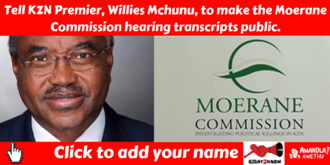- Featured
- Clean air
- Climate justice
- Consumer Rights
- Corporate Accountability
- Data access
- Early Childhood Development
- Economic fairness
- Education
- Electoral fairness
- Environmental justice
- Food justice
- Gender based violence
- Grants/social assistance
- Health
- Housing and infrastructure
- Industry interference
- Land Justice
- LGBTQIA+ rights
- Media/ information access
- Public transport
- Racism
- Reparations
- Safety
- Sanitation
- Service Delivery
- Sexual and Reproductive Rights
- Social justice
- Unemployment
- Womxn's rights/ gender equality
- Workers' rights
- More
-
Give Us A List Of Skin Products That Are IllegalAccording to BBC, South Africa became the first country to ban the sale of skin lightening creams that have hydroquinone, that was in 1990[1]. Because we are the first country to ban creams with hydroquinone we should be leading the fight against harmful skin products, but that is not the case because many black women are still suffering the consequences of using harmful skin products, especially illegal skin lightening products. SAHPRA has a list of their responsibilities on their website[4], one of those resposibilities is ensuring that unregistered health products are removed from the public but, how can the public know when a product is illegal if SAHPRA doesn't list them on their website? According to SAHPRA’s section 21, certain unregistered products are allowed to be sold, how can we tell whether an unregistered product is authorised to be sold or not? SAHPRA has a list of registered health products on their website, it should be easy for them to have a list of products we should be wary of. Such transparency will allow people to make informed choices, it will help prevent the sale of dangerous skin products and also protect people’s health. The Guardian reported that skin lightening products are linked to cancer in black women, melanin found in black people protects the skin against sun damage and when they use illegal skin products they remove the protection they had against sun damage[2]. Despite regulations in place, Daily Maverick shared that South Africa's market of illegal skin lightening products is growing and the products are not only sold by informal vendors in shops but also online, quoting platforms like eBay, Takealot, Facebook and many more[3]. SAHPRA has the power to let people know what skin products are illegal, but they are choosing to turn a blind eye and instead, they tell us to report illegal health products. How can we report illegal products when we can’t even identify them? this negligence is putting more and more people’s health at risk because not everyone can identify illegal health products, a lot of these products are sold online, SAHPRA must evolve, catch up and utilise the internet to name and shame these products by publicising a list, inspect, raise awareness and share information. Let's come together by signing this petition, tagging South African Health Products Regulated Authority(SAHPRA) on all their social media platforms and also visiting their website and tell them that we want a list of illegal skin products, we see their incompetence, we don’t like it and we won’t tolerate it anymore. [1] How South Africa banned skin lightening creams, BBC, July 3 2020 BBC Audio | Witness History | How South Africa banned skin-lightening creams [2] Colonial ideas of beauty: how skin lightening products are linked to cancer in black African women, 30 July 2025, Kat Lay. https://www.theguardian.com/world/2025/jul/30/colonial-beauty-skin-lightening-products-linked-cancer-black-african-women [3] Skin lightening whitewash: Global and domestic bans of cosmetics containing Mercury prove to be skin deep, Tony Carnie for Daily Maverick, 15 February 2022. https://www.dailymaverick.co.za/article/2022-02-15-skin-lightening-whitewash-global-and-domestic-bans-of-cosmetics-containing-mercury-prove-to-be-skin-deep/ [4] SAHPRA’s Regulatory Compliance, Unit Responsibilities List. https://www.sahpra.org.za/inspectorate-pharma-licencing-and-regulatory-compliance/67 of 100 SignaturesCreated by Rina Lekoloane
-
Stop Facebook forcing us to give up our personal info to use WhatsAppWhen Facebook acquired WhatsApp in 2014, their CEO Mark Zuckerberg said: “We are absolutely not going to change plans around WhatsApp and the way it uses user data. WhatsApp is going to operate completely autonomously.” Facebook CEO Mark Zuckerberg lied. They went ahead and updated WhatsApp’s terms and conditions in 2016, Facebook gave itself access to a wide range of our personal data without our permission. Now, we only have until 15th May until Whatsapp goes back on their word and forces users to opt-in to their terms and conditions. This cannot be allowed. The South African law protects us as users and places emphasis on our protection against companies and corporates that infringe on our privacy laws. “The POPI Act broadly requires businesses to limit their use of personal data, get consent before using it, and let users withdraw their consent later on [1].” Whatsapp completely disregards this act and leaves users with no form of consent before or after signing into the terms and conditions. Mzansi recently introduced new laws to protect people's personal information. “The POPI Act broadly requires businesses to limit their use of personal data, get consent before using it, and let users withdraw their consent later on [1].” Many aspects of POPI are similar to European General Data Protection Regulation (GDPR) which has helped protect people in Europe from companies using their personal information without their consent. Billions of people around the world use Facebook services - Facebook, WhatsApp, and Instagram - in order to connect with friends and family. WhatsApp is the main company world wide with over 2 billion users. This gives Facebook the power to coerce people to share their personal information so they can profit even more than they have. [1] South Africa's POPI Act: https://www.freeprivacypolicy.com/blog/popi/#:~:text=The%20POPI%20Act%20broadly%20requires,done%20in%20a%20Privacy%20Policy.407 of 500 SignaturesCreated by Palesa Ramolefo

-
#ThePeopleSay #WakeUpSA: Raising our voices against state capture and corruptionWe have elected leaders and bestowed on them the responsibility to govern, to enable us to achieve a better life for all – not themselves. We, as people of South Africa, have a right to know in whose interests’ decisions – supposedly in "our” name – were and continue to be made. The culture of secrecy and impunity must come to an end if our democracy is to thrive. Transparency and accountability are non-negotiable, as too are the requirements for transformative actions to address the injustices that remain embedded in our social, economic and political systems. Our constitution is revolutionary in its design, but the values and vision that it prescribes can only materialise if embraced by the state through which it is enacted. As people of this country, we all support the value and vision in the Constitution which protects the rights of the people in our country, it is the bedrock of our democracy and foundation of the rule of law. We, the undersigned, support/endorse this open letter to raise our voices in solidarity against state capture and impunity, and to say now is the time for us to be heard. The realities of the current moment cannot be met with silence and complacency. #ThePeopleSay #Wake-Up SA! Civil Society endorsements: Alternative Information and Development Centre (AIDC) Centre for Applied Legal Studies (CALS) Council for the Advancement of the South African Constitution (CASAC) Corruption Watch (CW) Dullah Omar Institute (DOI) Equal Education (EE) Freedom Under Law (FUL) Legal Resources Centre (LRC) My Vote Counts (MVC) Open Secrets Organisation for Undoing Tax Abuse (OUTA) Public Affairs Research Institute (PARI) Section27 (S27) Southern African Faith Communities’ Environment Institute (SAFCEI) Right2Know (R2K)78 of 100 SignaturesCreated by Civil Society Working Group on State Capture (CSWG)

-
Lindiwe, what happened to the R600 million in Rent Relief?On 21 July 2020 the Minister of Human Settlements, Water and Sanitation Lindiwe Sisulu announced in her budget vote speech that her Department planned to allocate R600 million towards rental relief to tenants in affordable housing facing financial distress due to the COVID 19 pandemic. The funding, aimed at tenants in ‘formal affordable housing’ was meant to help those facing potential homelessness to meet their monthly rental obligations. This in turn would assist landlords who depended on rental income to survive. In her speech, the Minister made the undertaking that the details of the rent relief for such tenants would be published 30 days after her address.[2] IT IS NOW MORE THAN EIGHT MONTHS FOLLOWING THIS COMMITMENT AND NO DETAILS OF THE RELIEF SCHEME; NO POLICY PUBLISHED, AND NO FUNDING HAS BEEN RECEIVED BY TENANTS, WHO MAKE UP SOME OF THE PEOPLE HARDEST HIT BY THE PANDEMIC IN OUR COUNTRY. The stark reality is that between 2.2 and 3 million people lost their jobs in the first months of lockdown.[2] This has created a situation where households are caught in a double bind between maintaining their shelter and having enough food and water to stay alive. Correspondingly, the TPN Residential Rental Monitor for the fourth quarter of 2020 found that low end tenants had the weakest rental payment performance. Specifically, the report states that: “the “Less than R3,000/month” rental segment is populated by the most financially fragile tenant population, with significantly fewer financial “buffers” with which to weather any storms that translate into income loss, or those unexpected household expenses that arise periodically.” [3] In fact, the undertaking to provide R 600 million in rent relief was made to prevent the crisis that many of the 3 720 000 tenants [4] living in South Africa may now find themselves in. Albeit too little too late for tenants who have fallen victim to unlawful action by landlords and service providers across the country.[5] The consequences of these shortcomings taken together might be even more dire: on 9 March 2021, DA Shadow Minister of Cooperative Governance and Traditional Affairs, Mr Cilliers Brink announced that the party is calling for the urgent lifting of Alert Level 1 lockdown regulations stating that the regulations make it “close to impossible” for property owners to obtain eviction orders.[6] We are teetering on the brink of a secondary national disaster where we stand to exacerbate a health crisis into a homelessness crisis. The former UN Special Rapporteur on the Right to Housing Leilani Farha has cautioned that “[i]n the face of this pandemic, a lack of access to adequate housing is a potential death sentence for people living in homelessness”[7]. Home has rarely been more of a life or death situation – Housing remains Healthcare! JOIN US IN DEMANDING THAT THE NATIONAL DEPARTMENT OF HUMAN SETTLEMENTS, WATER AND SANITATION DO THEIR JOB URGENTLY. [1] https://www.gov.za/speeches/minister-lindiwe-sisulu-human-settlements-dept-budget-vote-202021-21-jul-2020-0000# [2]https://cramsurvey.org/wp-content/uploads/2020/07/Spaull-et-al.-NIDS-CRAM-Wave-1-Synthesis-Report-Overview-and-Findings-1.pdf [3]https://www.tpn.co.za/Group/Home/Media [4] http://www.statssa.gov.za/publications/P0211/P02114thQuarter2020.pdf [5] https://www.iol.co.za/personal-finance/government-needs-to-subsidise-tenants-rentals-50528669 http://www.statssa.gov.za/publications/P0318/P03182019.pdf [6]https://www.da.org.za/2021/03/da-calls-for-lifting-of-lockdown-regulations-to-restore-private-property-rights [7]https://www.ohchr.org/Documents/Issues/Housing/SR_housing_COVID-19_guidance_rent_and_mortgage_payers.pdf1,724 of 2,000 SignaturesCreated by Mpho Raboeane
-
Add your name to assist Wits students owing more than R20 000 to registerLungelo Malevu, holding a BSc in Biological Sciences is one of many from Wits University who currently have historical debt “I owe R135 893.28 and the university has withheld my degree and I only have access to my unofficial transcript. This is a challenge because I cannot apply for a number of jobs since there is no proof that I have completed my degree” Portia Mosime, hoping to register for her final year in Psychology “my mother is unemployed but we survive through the money she makes from her vegetable garden which supplies her community with fresh veggies, however she makes less than R500 a month this is not enough to cover the outstanding debt at Wits amounting to R76 117.81” Students often financially excluded from institutions of higher learning are black female students from previously disadvantaged backgrounds. They account for close to 58% in universities and 57% in TVET colleges [4]. The lack of access to funding opportunities for higher learning affects them the most. Following the efforts made by the SRC and other important organizations, these testimonies should motivate people to add their names to this campaign to put more pressure on the financial committee (FinCo) as they are the ones responsible for determining the fees to be paid by students. Ultimately this should end the unequal access to institutions of higher learning affecting poor black South African youth. The efforts by NSFAS and other funding schemes can only assist a certain number of students, this further reduces the rate at which graduates enter the job market. Despite unemployment rates being high, the critical work of doctors and nurses requires a surplus of recent graduates based on the demands of the job. If a medical degree student fails to clear their historic debt they cannot graduate and enter the job market, potentially changing people’s lives. These dreams end up not being a reality. Therefore, the more support this campaign gains, the fight against academic exclusion due to finances is kept alive, students around this time are in distress and often end up further getting themselves into more debt and stress way before the academic year starts. Adding your name to this campaign at this moment ensures that the relevant decision makers can act now and implement these demands before the month comes to an end. This means that students with historic debt can continue with their studies. References [1] Wits Vuvuzela, 2019 Accessed here: https://www.wits.ac.za/registration/returning-undergraduate-students/ [2] Takalani Sioga for the Wits Vuvuzela. 3 August 2018. Accessed here: https://www.witsvuvuzela.com/2018/08/03/nsfas-tells-2019-applicants-to-wait/ [3] Michael Pedro for EWN, 2019. Accessed here: https://www.google.com/amp/s//ewn.co.za/2019/03/24/dhet-allocates-r697m-to-nsfas-to-settle-historic-debt-owed-to-universities/amp [4] South African Market. 12 November 2019 Category: Education accessed here: https://www.southafricanmi.com/education-statistics.html346 of 400 SignaturesCreated by Thabisile Miya
-
Demand SABC refunds the top 10 song of the year votersThe SABC started the selection process for "song of the year 2019" and opened voting lines to listeners even though they already knew that they did not have an agreement with the concept owners of "song of the year". The concept owners took the SABC to court to stop this. The Court then instructed the SABC to not air "song of the year 2019", resulting in a loss for all those who had already voted. It is false advertising and unfair to those who voted that the SABC has taken their money but did not deliver a song of the year countdown.34 of 100 SignaturesCreated by Nomvula Maneli
-
Mweli, Make Gender and Sexuality Studies Compulsory in teacher training programsKarabo Mafolo of the Daily Maverick reports that “In a 2016 report, the LGBTI organisation OUT LGBT Well-being, reported that 51% of transgender people had experienced discrimination in their education life.” This year, there was an mass hysteria about the new curriculum introducing “masturbation” as part of the new Life Orientation curriculum for grade 4 according to a misleading article by Prega Govender in The Sunday Times, 12 May 2019. This sparked the conversation on social media platforms where the concern wasn’t necessarily the introduction of sex and gender education but the level of engagement. More concerning however, is that there is currently no steps being taken to ensure that the very educators of the current and new Life Orientation curriculum are being trained to formally and professionally Gender and Sexuality Studies. The Department has previously displayed a strong capacity to retrain teachers when the CAPS curriculum was introduced in 2011. Met with great reluctance from teachers, Bongani Nkosi of The Star reported that the CAPS curriculum was implemented, reviewed and monitored - meaning the Department of Education is able to introduce gender and sexuality as part of current and future training for firstly Life Orientation teachers, and gradually, a compulsory training program for any teaching qaulification. It is the responsibility of the Department of Education to prioritize Gender and Sexuality to create inclusive, intersectional and informative learning environments starting with the teachers and filtering it down to scholars and the wider community Sources 1. Department of Education (www.education.gov.za) - Director General of Basic Education 2. Bongani Nkosi, The Star, 7 September 2018 3. Prega Govender, The Sunday Times, 12 May 2019 4. Karabo Mafolo, The Daily Maverick, 4 June 2019215 of 300 SignaturesCreated by Kay Ntshulana-Bhengu
-
Tell Panyaza Lesufi to remove any hair policies in Gauteng schools that are discriminatorySchools are institutions of learning and not only learning about modules placed in curriculum's but also raising and emphasizing the importance of self-discovery and identity. Students need to learn more about themselves as well as their cultures and then teach others about it. When we teach young black girls that their hair has to be changed so they can suit a certain school culture what are we teaching them about themselves and how they were born? Schools should embrace the black culture and not try to change it. Most of these schools implemented their hair policies way before African black children were allowed into the then-White-only schools so they are not very inclusive of the black culture and the way African hair grows.Were the hair policies of schools reviewed after Apartheid and changed to suit everyone's hair needs? Each school can have different policies and school cultures as long as black pupils do not feel like they are being prejudiced against how they look as Africans. Schools need to also enforce educating themselves on African black cultures and how the African hair grows if they continue to enforce hair policies. [1] Pretoria Girls High pupils were victims of racism-MEC, Lizeka Tandwa for News24, 2016/12/03 [2] Gauteng High School embroiled in natural hair scandal, Silindelo Masikane for the eNCA, Monday 11, March, 2019 [3] Several State & Private Schools have bans on Dreadlocks. Afros and braids, Prega Govender for Mail & Gaurdian, 02, September, 2016 [4]School Governing Bodies: Play your part, Department of basic education 2019 [5] Lesufi gives Kempton Park school deadline to change hair policy, Nation Nyoka for News24, 25/07/2017415 of 500 SignaturesCreated by Matheko Ramolefo
-
Protect our private info! Implement SA’s privacy law!Every day, ordinary South Africans get calls and messages from private companies that want our money, or political parties that want our votes, or banks that want us to take out loans. But how did they get our information? There is a powerful privacy law called the Protection of Personal Information Act (POPI) which is meant to protect every person’s personal info from being traded, misused or stolen [1]. The POPI Act is meant to be enforced by a new privacy watchdog called the Information Regulator (headed by Adv Pansy Tlakula), which can investigate companies or departments that misuse your personal info. But six years after being signed, this privacy law isn’t fully in force. After years of bureaucratic delays, the Info Regulator is still not operational. The law will not come into full force until the Info Regulator has enough staff and resources to fulfill its watchdog mandate. While these delays continue, millions of South Africans’ personal info have been exposed through ‘data breaches’ by private companies and government agencies [2]. We need the watchdog up and running to investigate and act against companies and departments which misuse our private info. This is especially urgent as South Africa heads to 2019 elections, given the growing risk of personal info being used for electoral interference [3]. We call on the Information Regulator and Parliament, Treasury to act now: get the watchdog fully staffed and operational, and get the POPI law in force! _________________________ [1] Read more: What you need to know about the POPI law, at https://r2k.org.za/popi-guide [2] “Five massive data breaches affecting South Africans,” Fin24, 19 June 2018: https://www.fin24.com/Companies/ICT/five-massive-data-breaches-affecting-south-africans-20180619-2 [3] “How Trump consultants exploited the Facebook data of millions,” 17 March 2018: https://www.nytimes.com/2018/03/17/us/politics/cambridge-analytica-trump-campaign.html Note from R2K: View the Amandla.mobi privacy policy at http://awethu.amandla.mobi/privacy_policy It includes a commitment that your personal information will not be provided to any third parties, including us. All signatories to this petition have the right not to receive further updates about this campaign or any others.467 of 500 SignaturesCreated by Right2Know Campaign

-
Tell Pres. Ramaphosa to force Health Minister Motsoaledi to take back xenophobic statements.Mzansi is in a crisis- hatred and violence against immigrants is still a big problem in South Africa. Health Minister Aaron Motsoaledi has made claims about undocumented immigrants flooding South Africa and overburdening our health system without any evidence or proof. This irresponsible lie is part of government’s propaganda war on Afrikans and their children living in Mzansi. But we can bring this xenophobic propaganda war to an end. Today is International Children’s Day and if enough of us come together and flood Pres. Ramaphosa’s inbox, we can force him to commit to protecting all Afrikan children and tell the Health Minister to take back his statements and apologize. The Health Minister, without any evidence or proof, said “[when immigrants] get admitted in large numbers, they cause overcrowding, infection control starts failing” [1]. But this isn’t the first time government have tried to trick us. In 2015 former Gauteng Health MEC Qedani Mahlangu said 9/10 patients in hospital and clinics were immigrants and blamed them for the health system not working and was unable to back-up their claims [2]. "Home Affairs in 2017 said it 384 000 people coming into the country from Zimbabwe, but only 27 000 can be accounted for. That tells you there is a huge problem," said DA Gauteng Premier Candidate Solly Msimanga. [3] But only 2.2 million people, less than 4% of SA’s population, are immigrants [4]. Clearly this is misinformation. In the lead up to the election it appears political leaders and political parties are trying to distract, divide and trick us with lies and misleading information and shift the blame for their failures onto immigrants. Nelson Mandela University researcher Savo Heleta writes “Why would politicians choose to face the rightful anger of millions of poor and hopeless South Africans when they can revert to anti-immigrant rhetoric and shift blame to those who have no voice?” [5] We won’t fall for it. We demand the truth. Force Pres. Ramaphosa to tell the Health Minister to retract his statements and apologize by signing this petition. It appears that some political parties are trying to focus our attention on immigrants instead of their own failings. This could be part of their larger strategy to try secure more votes for their party in the lead up to the 2019 elections. If we don’t keep holding government, political leaders and political parties accountable they will only double-down on their efforts to divide us and keep us from the truth by scapegoating immigrants for their failures. We have a choice, either we stand by and watch as government wage propaganda war against our fellow Afrikans or we come together and stand with those who, just like us, are looking for better opportunities for themselves and their children. As amandla.mobi members and a greater Afrikan community we can tell this story and ensure our government protects and gives equal opportunities and access to ALL Afrikans. Force government to tell Aaron Motsoaledi to take back his statements and make protecting all Afrikans a priority by joining the campaign and signing the petition. [1] https://bhekisisa.org/article/2018-11-20-00-immigrant-blame-game-motsoaledi-remarks-immigrants-strain-on-health-system [2] https://bhekisisa.org/article/2018-11-20-00-immigrant-blame-game-motsoaledi-remarks-immigrants-strain-on-health-system [3] https://www.enca.com/news/das-stance-illegal-migrants-could-fuel-xenophobia [4] https://africacheck.org/reports/do-5-million-immigrants-live-in-s-africa-the-new-york-times-inflates-number/ [5] https://africasacountry.com/2018/08/xenophobia-trumps-ubuntu-in-south-african-politics210 of 300 SignaturesCreated by Khaliel Moses
-
President Ramaphosa, sign the Political Party Funding BillThe Political Party Funding Bill has the potential to curb the instances of corruption that plagues our political and electoral systems. We have seen it with the State Capture Inquiry and through the instances of maladministration in local government structures. All of this because we don't have access to the crucial information of who provides funding to political parties. It is our democratic right to not just vote but to make an informed vote. The information of political parties’ private donor information is required to make an informed vote at the elections. The longer the President delays signing the Bill into law, the longer we will have this democratic right denied. After twenty-four years of South Africa’s democratic dispensation, political parties remain unwilling to provide the public with information on their private funding. For many years, we have been campaigning for Parliament to regulate the transparency of political parties private funding information. Although long overdue, in 2017 Parliament finally drafted the Political Party Funding Bill. This Bill is the only law that will place an obligation on political parties to disclose information on their private funding. Earlier this year the Bill was adopted in Parliament, however the Bill cannot be implemented until President Cyril Ramaphosa signs the Bill into law. Sign this petition and help put measures in place that could effectively prevent more dubious dealings on all levels of government that affects all South Africans.383 of 400 SignaturesCreated by Amandla.mobi Member
-
Publish the Moerane Commission hearing transcriptsIndependent analysts put the number of people killed in what has been dubbed as political killings in KwaZulu-Natal (KZN) as high as 104 [1]. These killings have made residents feel unsafe. Despite this, KZN Premier, Willies Mchunu, refuses to release the Moerane Commission report and hearing transcripts. Even when a Public Access to Information (PAIA) request was made on 16th August, giving him 30 days in which to act, the Premier has failed to comply. Premier Willies Mchunu appointed the Moerane Commission of Inquiry to investigate the underlying causes of the killings and to come up with recommendations based on the evidence from the security forces, victims, families, political parties and local government. The Commission completed its work in May and tabled the Moearane Commission to the Premier. Following that, the report was tabled at the KZN provincial legislature [2], but it still has not been published on all government websites. The public deserves to know. The hearings were funded by the public, the majority of them open to the public, and relates to issues of great importance to the public. The people of Umlazi and surrounding areas, and where the bulk of the killings have a vested interest to know what happened.63 of 100 SignaturesCreated by Right 2 Know

.png)
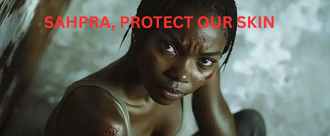
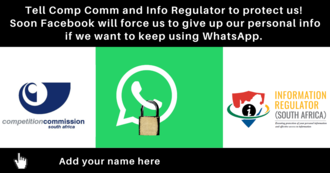.png)
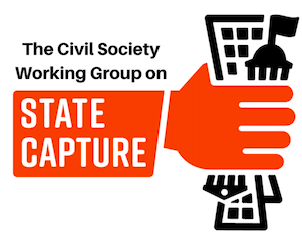
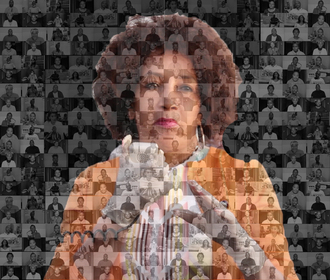

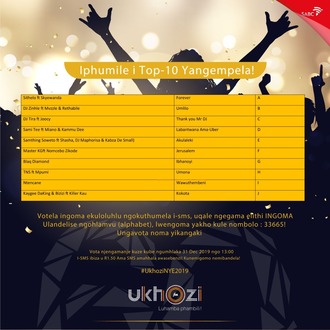


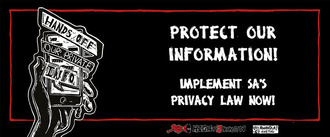
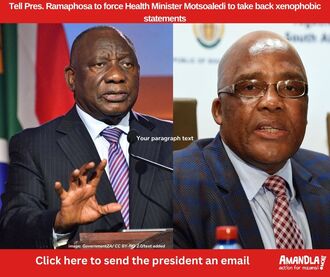.jpg)

